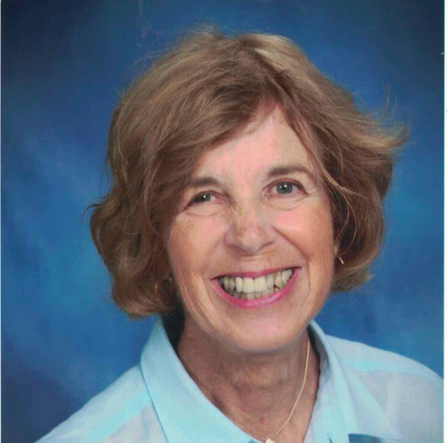All Alone: Gretchen’s Journey
“There was no one to tell me that what I was feeling was normal, or to calm me down, or give me hints about child care or side effects.” ~ Gretchen Campbell, discussing cancer support 40 years ago.
What was it like—40 years ago—to be told that you, a stay-at-home mother of two very small children, had cancer? When your parents were several states away, when your husband had a very busy job, when you didn’t know anyone with cancer, when there were no support groups, when the doctors in your hospital were competent but matter-of-fact, and you were utterly terrified? And isolated?
Ask Gretchen Campbell.
Gretchen and her young family were living in Baltimore when she found a lump in her breast. She didn’t think that the little thing was dangerous, but, at the same time, she thought she should have it removed. One Friday, she headed to the local hospital, and, although the doctors agreed that it was just a cyst and even toyed with doing nothing, Gretchen insisted. And the moment they removed it, they knew: it was malignant. Gretchen had cancer.
The doctor said he’d do a mastectomy that afternoon. The urgency was frightening, but that’s the way a cancer diagnosis operated: get it out fast. And there was only one way: mastectomy. No other options. Maybe followed by chemo and radiation.
Gretchen shifts her delicate frame in the chair. “I said, ‘Wait, I have two small children, I can’t do this so fast.’” So, surgery was scheduled for Monday.
“I spent the weekend hysterical, trying to find someone to care for my kids, trying to understand what was happening. I’d never thought about breast cancer. I’d hear about it, but I had no contemporaries who had it. A friend would know someone who knew someone. One friend told me about a neighbor named Marge who had breast cancer and was horribly disfigured from the surgery.” Gretchen runs her fingers through her chin-length brown hair.
But there was no time to contemplate.
Terrified, she returned to the hospital in preparation for surgery. “I was just carrying on, crying. The minister came to see me, and he just stared at me. He didn’t know what to say, the nurses and doctors didn’t know what to say.” There was no one anyplace—among her friends, her parents, the medical staff, the clergy—who knew what to say.
After successful surgery, she came home. She had no contact with anyone. She couldn’t lift her child. Her husband had no idea what she was going through, and he was scared too. She followed up on her doctors’ recommendation that, although they didn’t see a need for chemo or radiation, she go to Johns Hopkins Breast Cancer Clinic, also in Baltimore, for further evaluation. “What really got me upset initially,” says Gretchen thoughtfully, “was going to a ‘cancer’ clinic, not a Breast Center, which is its name now.
“I went there by myself,” Gretchen narrows her eyes in reflection. “I walked into the cancer clinic, thinking, ‘This is the end.’ I lost it, burst out crying.” And the doctors told her that before they could treat her, she’d need to meet with a psychiatrist.
She didn’t know about mental health then—not until she received her master’s degree in social work a few years later in Tulsa, Oklahoma where her family then moved. “So, when the psychiatrist asked why I was there, which is a standard question, I thought, ‘You know damn well why I’m here.’ But we talked, and he told me I was perfectly fine to return to the breast clinic.”
But he didn’t recommend any support groups. Because there weren’t any.
Instead, Gretchen’s support group became the staff at the breast center. “I went back to Hopkins for 25 years. I watched a resident grow up and retire as head of oncology. Even when we were living in Tulsa, I went back every summer.” She smooths the cuffs of her shirt.
Sporadically, she’d find a bit of support through a random connection. A Baltimore friend had a Virginia friend who had breast cancer. The Virginia friend wrote her an uplifting letter. “It turned out,” she laughs, “that we’d been sorority sisters.
“I might have gotten a call from someone while I was in the hospital, but I was so upset, and it was so singular that I never followed through, and no one followed up with me,” she says.
The grey day suddenly lightens the room. “A few years out, someone at the hospital called to ask me to call someone who’d been diagnosed with cancer. But I wasn’t feeling positive. I didn’t want to talk to anyone. These were cold calls. They were hard for me to do. I was too scared,” she continues.
No one told her that the specter of cancer would haunt her for years. Any time she had a twinge of anything, anywhere, she thought it was cancer. “There are markers now for breast cancer, but there weren’t any then. So, it always hung over me,” she fiddles with her collar.
A couple of years after her mastectomy Gretchen underwent breast reconstruction. “The dark ages,” she tucks a strand of hair behind an ear. “The doctors couldn’t tell me what it would look like or give me a picture. They took pictures of me so they could show others, but there was nothing to show me.”
Gretchen glances down. “I had no one to talk to about this.
“There was no one to tell me that what I was feeling was normal, no one to calm me down, no one to give me hints about child care, or side effects. I would have joined a support group—not forever but for a while—until I became more confident about my health.” She shrugs.
__________________________________________________________________
Gretchen is a member of the Cancer Support Community’s Ambassadors of Hope, an advisory group to the program director.


